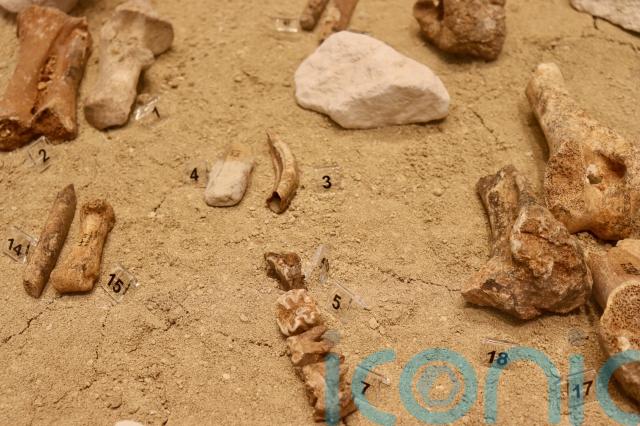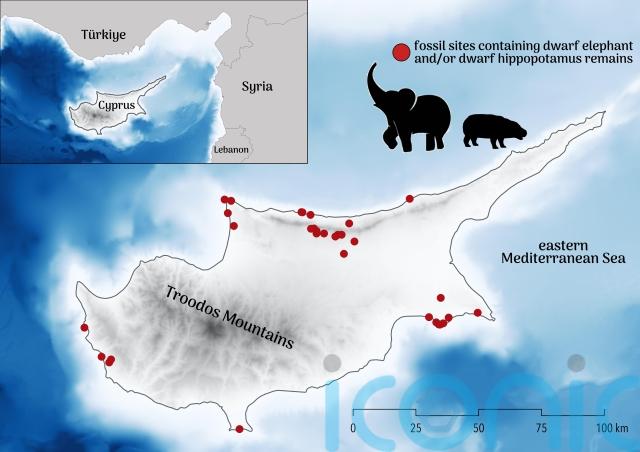
A small population of just 3,000 people may have caused dwarf hippos and dwarf elephants in the island of Cyprus to become extinct some 14,000 years ago, scientists believe.
The Mediterranean nation was once home to the 500kg dwarf elephant (Palaeoloxodon cypriotes) and the 130kg dwarf hippo (Phanourios minor) but both disappeared within a century after hunter-gatherers arrived, researchers said.
They argue the findings, published in the journal Proceedings of the Royal Society B: Biological Sciences, challenge the view that a small human population could not have caused such rapid extinctions.

Lead author Professor Corey Bradshaw, of Flinders University, said that mammals such as dwarf hippos and elephants may have been at the risk of disappearing because of “edible meat they provided to the first people on the island”.
He added: “Our research lays the foundation for an improved understanding on the impact small human populations can have in terms of disrupting native ecosystems and causing major extinctions even during a period of low technological capacity.”
A team of researchers led by Prof Bradshaw reviewed archaeological records and developed models to paint a picture of what the hunter-gatherers would have eaten or hunted.

Results showed that a small population of just 3,000-7,000 people would have been enough to drive both dwarf species to extinction.
Dr Theodora Moutsiou, of the Archaeological Research Unit at the University of Cyprus, said that Cyprus was “the perfect location” to test the models “because the island offers an ideal set of conditions to examine whether the arrival of populations of humans ultimately led to the extinction of its megafauna species”.
She said this was because the island is “an insular environment” that “can provide a window back in time through our data”.
Subscribe or register today to discover more from DonegalLive.ie
Buy the e-paper of the Donegal Democrat, Donegal People's Press, Donegal Post and Inish Times here for instant access to Donegal's premier news titles.
Keep up with the latest news from Donegal with our daily newsletter featuring the most important stories of the day delivered to your inbox every evening at 5pm.